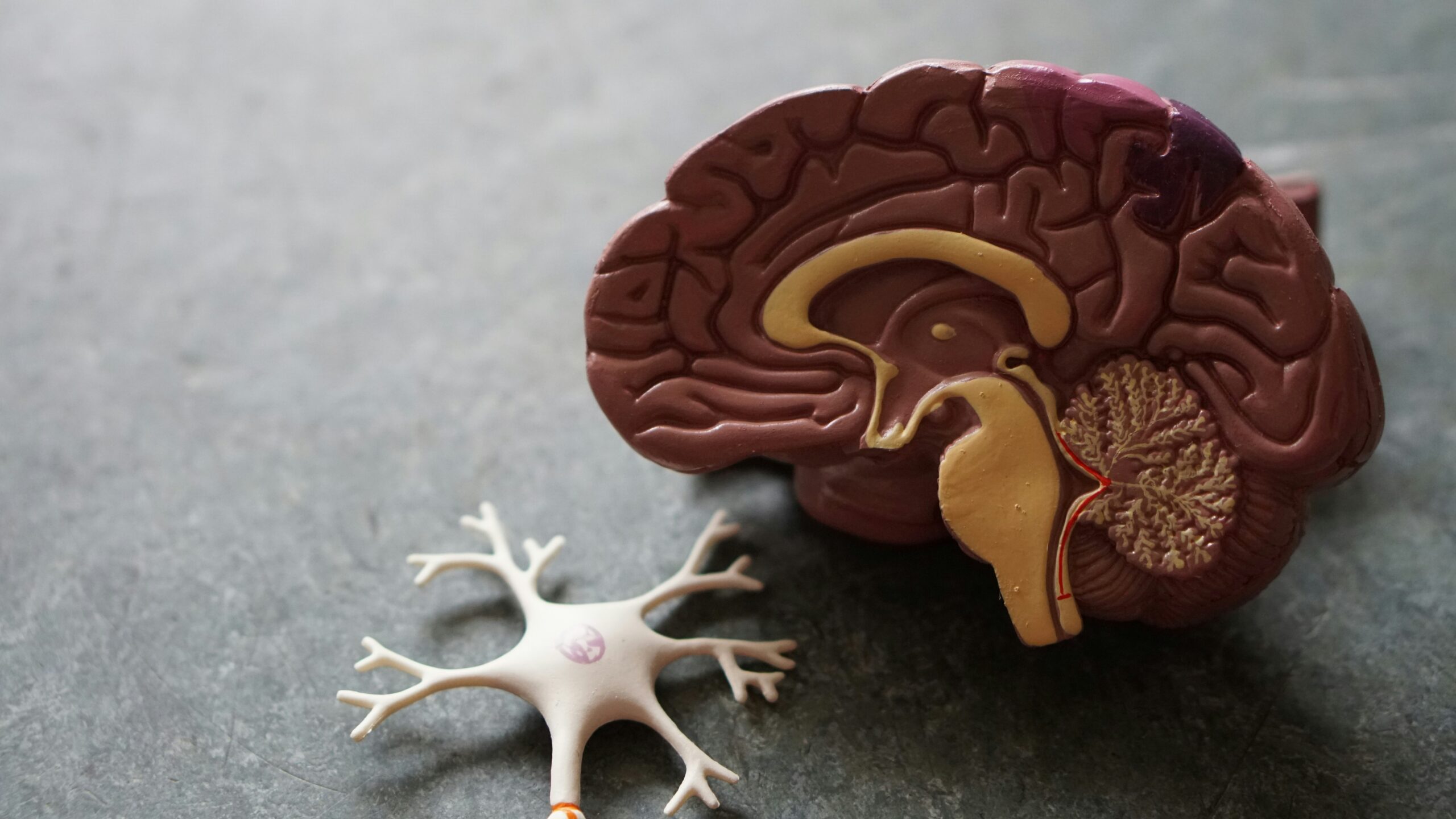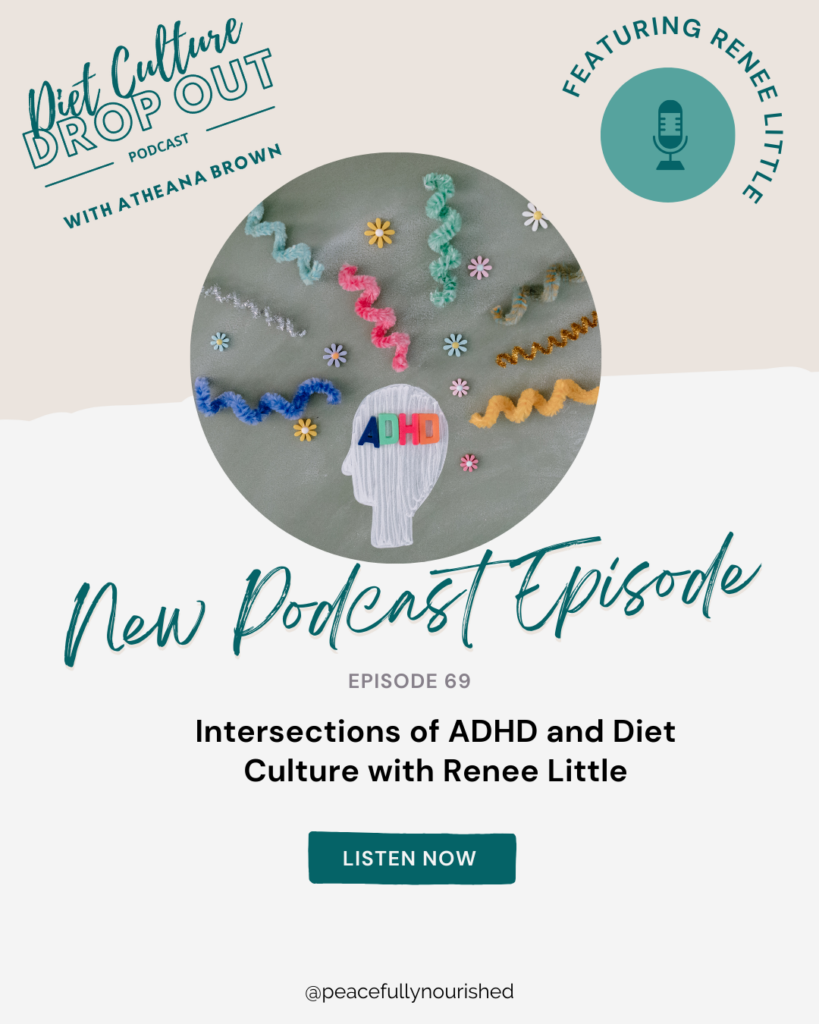Welcome back to Diet Culture Dropouts! Today, we’re diving into an insightful and timely topic: the intersections of ADHD and diet culture. We are excited to have Renee Little, a seasoned dietitian from Calgary, Alberta, join us to discuss her experiences and knowledge in this area.
Check out the full podcast episode here
ADHD and Diet Culture
The podcast explored the intersections of ADHD and diet culture in depth. Renee and our host discussed how our neurotypical-centric world makes it crucial to develop unique solutions for individuals with ADHD. Both acknowledged the evolving research and increased advocacy in this area, which is heartening.
ADHD, or Attention Deficit Hyperactivity Disorder, is a common condition that can affect individuals of all ages, often impairing various aspects of life such as academic, professional, and personal relationships. Many adults are diagnosed later in life, sometimes after a child in the family is diagnosed. Renee pointed out the challenges her clients face, from managing medication-induced nausea to coping with low appetite and the energy deficits unique to those with ADHD.
Addressing Diet Culture Challenges
Renee provided valuable insights into how diet culture complicates the already challenging task of managing food and medication side effects for individuals with ADHD. She discussed the pervasive stigma around convenience foods and the unrealistic expectations placed on meal preparation. This negative perception can hinder individuals from utilizing practical solutions that could greatly simplify their lives.
Renee shared several practical strategies she uses with her clients, focusing on nourishment and balancing energy:
1. Managing Nausea: She recommends eating frequently, using liquid meals, staying hydrated, and taking medications with food in the morning.
2. Addressing Low Appetite: Renee emphasizes understanding non-traditional hunger cues, creating visual reminders for eating, and planning high and low-energy meals.
3. Simplifying Cooking: For individuals who find new recipes overwhelming, Renee suggests splitting meals into high and low-energy categories, utilizing grocery delivery, and prepping ingredients in advance.
4. Overcoming Food Beliefs: She highlights the importance of breaking free from the diet culture-driven stigma against processed and pre-packaged foods, noting that these can be essential for maintaining nourishment in a manageable way.
Hidden Costs of ADHD
One critical point Renee made was about the hidden costs associated with ADHD, such as the financial burden of pre-cut fruits, meal delivery services, and grocery deliveries. She also mentioned the Canadian Disability Tax Credit, which can provide financial relief for adults and children with ADHD.
Final Thoughts
For those looking to learn more about Renee and her work, you can find her on Instagram and on her website. Renee’s dedication to compassionate and inclusive dietetic practice makes her a vital resource for anyone navigating the complexities of ADHD and diet culture. Renee’s insights highlight the importance of tailored, compassionate care in dietetics, underscoring the need to support individuals with ADHD in a way that honors their unique experiences and challenges


leave a comment
share
share
share
share
share